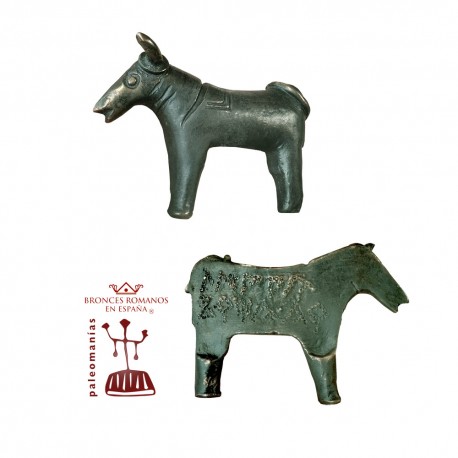No products
Product successfully added to your shopping cart
There are 0 items in your cart. There is 1 item in your cart.
 View larger
View larger
Celtiberian token of hospitality I
REPM130
New
Libiaka token of hospitality (2.36 x 3.15 x 0.59 in)
This product is no longer in stock
- Write a review
- Send to a friend
- Remove this product from my favorite's list.
- Add this product to my list of favorites.
- Save as PDF

More info
Libiaka token of hospitality
Bronze reproduction using the lost-wax method of the Libiakan tessera (Tessera of the Bull of Libia or Tessera of Huete), a zoomorphic figurine in the shape of a bull with dotted characters on the reverse side (Libiaka Kortica: Kar), inscribed in Celtiberian language (see the symbolism of the bull in Celtic Hispania in RET 2004). The text could be interpreted as "Libian public pact" (Hesperia). Late 3rd to 1st century BC. Preserved at the Royal Academy of History (Madrid).
The piece was found at the Celtiberian site of Contrebia Carviva (Villas Viejas, Huete, Cuenca) (see interpretations of the discovery in Hesperia, RAH) and refers to Libia, a city of the Berones, currently identified as Herramélluri, La Rioja (Beltrán Llorís, 2006), a site where a second tessera (ciudaddelibia) was found, in the form of a bear with extended legs (also in our collection).
Celtiberian 'hospitality tokens' (tesserae hospitalis) are small bronze objects, in two halves, each half being retained by people who stood in hospitality relationship to one another.



